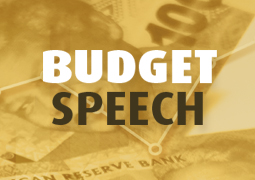
Today the Select and Standing Committees on Finance and Appropriation had a public hearing on the Finance Minister’s Budget Speech. Mostly, organised stakeholders gave their inputs on it. But the most contentious feature of the budget is the announcement of the capping of the expenditure on public servants’ wage bill. This subject will dog the Minister’s speech for a very long time.
The representative from the Congress of South African Trade Unions (Cosatu) stated quite clearly that it is their responsibility to avoid a jobs bloodbath at all costs and were not taking this announcement lightly. “It’s important to recognise that public servants support on average seven unemployed relatives.”
The recognition that the problem is not head count but the “bloated executive and management posts and perks. And the need to place public sector entities under a single service and collective bargaining process.”
According to Cosatu’s submission, “it’s politicians and management who have led us into this crisis. They must pay the price by slashing their exorbitant salaries and perks”.
One of the most inexplicable aspects of the budget is its failure to state that “10% of the budget is lost to corruption and wasteful expenditure annually”.
Numsa’s representatives decried the fact that they were not part of the negotiations that led to an agreement to cap the public service wage bill going forward. “We were not consulted because we are not part of this alliance.”
Numsa urged Parliament to intervene “to ensure that these negotiations are inclusive because it is a matter that affects all workers”.
It also decried the fact that “workers are not involved in the business rescue mission at South African Airways”.
The debate whether the budget was expansionary or an austerity budget resurfaced. The Fiscal Cliff Study Group team maintained that the budget was expansionary, a view that the two union representatives differed with sharply. In their view, any budget that hinges on cuts that affect the poor is an austerity budget. Citing the cap of public sector wage bill, they say the brunt of expenditure measure of this budget would be felt by the poor, and they regard that as an austerity measure.
The Fiscal Cliff Study Group differed. “There’s no austerity budget that has an increasing debt, that has a deficit of 6.3% to the GDP.”
The group also lamented the fact that the Minister missed an opportunity to increase tax revenue by not increasing VAT, a view that was sharply rebutted by the union.
Weighing in on the cap on the public servants wage bill, the South Africa Institute of Chartered Accountants opted to ask the vexing question of “whether South Africans are getting value for their money from the public service”.
Audit outcomes “of wasteful and irregular expenditure shows that there is no accountability in the sector”.
The group urged Parliament to “stop appropriating the budget without asking relevant questions. And it must hold departments accountable”.
OUTA’s concern was “the lack of transparency regarding the conditional grants given to South African Airways”. Its representative asked: “What is contained in those conditions. Are they implementable and why they were not made available to the public so that we can scrutinise them?”
The Chairperson of the Standing Committee on Finance, Mr Joe Maswanganyi, said the fact that the country’s economy is now in recession “should be taken very seriously. For history taught us that if unemployment keeps on rising, and the poor are getting poorer, there would be social unrest.”
Let’s find solutions together to the situation we are in today, he urged the stakeholders present, “the situation we are faced with is not Treasury’s situation, it needs our collective and concerted effort”.
By Abel Mputing
4 March 2020

